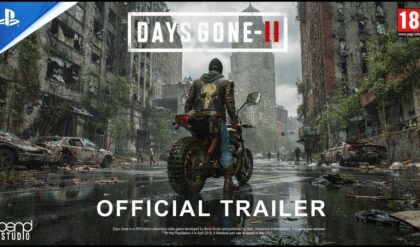Ubisoft Employees’ Fury Erupts: Tencent Sale Sparks Outrage and Lawsuit Threats Amid Assassin’s Creed Chaos
The halls of Ubisoft, the French gaming titan behind Assassin’s Creed, are ringing with dissent as employees reel from a blockbuster deal with Tencent, announced on March 27, 2025. The $1.25 billion (€1.16 billion) investment from the Chinese tech giant, securing a 25% stake in a new subsidiary housing Assassin’s Creed, Far Cry, and Tom Clancy’s Rainbow Six, was meant to stabilize Ubisoft’s shaky finances. Instead, it’s ignited a powder keg of fury among staff, already battered by the polarizing launch of Assassin’s Creed Shadows earlier in March. As of April 11, 2025, whispers of lawsuits are swirling, with workers alleging betrayal, overwork, and a sellout of their creative legacy. What’s driving this employee uprising, and could it sink Ubisoft’s grand plans? Let’s dive into the chaos, exploring the Tencent deal, the Shadows backlash, and the brewing legal storm shaking the gaming world.
The Tencent Deal: A Lifeline or a Sellout?
Ubisoft’s new chapter began with a press release trumpeting a “foundational step” to bolster its top franchises. Tencent’s $1.25 billion infusion values the unnamed subsidiary at €4 billion ($4.3 billion), dwarfing Ubisoft’s own market cap, which has slid to $2.8 billion after years of decline. CEO Yves Guillemot hailed it as a way to “crystallize the value of our assets” and slash Ubisoft’s €1.4 billion net debt, per Bloomberg. The subsidiary, controlled by Ubisoft but with Tencent’s minority stake and veto power, will spearhead development in Montreal, Quebec, Barcelona, and beyond, focusing on Assassin’s Creed’s next moves post-Shadows. Shares surged 10% on March 28, a rare win after Star Wars Outlaws’ August 2024 flop and a 52% Q3 bookings drop.
But employees aren’t cheering. Sources on X and gaming forums like ResetEra claim staff see this as a “sellout” to a profit-hungry giant infamous for monetization-heavy titles like League of Legends’ $250 Jinx skin. “We’re losing control to Tencent,” one anonymous Ubisoft Montreal dev posted on Reddit, echoing fears of microtransactions and pay-to-win creeping into Assassin’s Creed. Tencent’s 10% stake in Ubisoft proper already raised eyebrows; this deal, insiders say, feels like a deeper betrayal after years of crunch and layoffs—200 cut in 2023 alone, per IGN. The timing stings too: Shadows hit 3 million players by March 27, Ubisoft’s second-best day-one sales revenue for the franchise, yet staff feel unrewarded, fueling their rage.
The Assassin’s Creed Shadows Backlash: A Perfect Storm
Assassin’s Creed Shadows, released March 20, 2025, was Ubisoft’s big bet—a feudal Japan epic starring Yasuke, a Black samurai, and Naoe, a female shinobi, with LGBTQ+ romance options. It launched to acclaim (85% Metacritic) and topped Origins and Odyssey in player counts, per Ubisoft’s earnings call. But the road was rocky. Delayed twice in six months—first from November 2024, then February 2025—it faced a vitriolic online pile-on. Trolls on X slammed Yasuke’s inclusion as “historical revisionism,” despite his real 16th-century roots, while others raged at “woke” romances, trending #BoycottShadows. Ubisoft weathered the storm, but employees bore the brunt—crunching through 2024 to polish a game that still shipped with bugs like NPC pop-in, per PC Gamer.
Staff fury predates Tencent. A 2024 Kotaku exposé revealed Shadows devs faced “soul-crushing” pressure, with some quitting over Ubisoft’s refusal to delay further despite Outlaws’ miss (under 2 million sold, per Eurogamer). “We delivered a hit, and they’re selling us out,” one X post from a purported employee fumed. The backlash’s toll—death threats to devs, per Sportskeeda—left morale in tatters. Now, Tencent’s deal feels like salt in the wound, with workers alleging it prioritizes shareholder value over their blood, sweat, and tears on Shadows. “We made it work, and they’re cashing out,” a Ubisoft Barcelona staffer told VG247 anonymously.
Lawsuit Threats: Employees Draw Battle Lines
The Tencent sale’s fallout has pushed employees to the edge—and possibly the courtroom. French labor unions, like STJV (Syndicat des Travailleurs du Jeu Vidéo), are reportedly mobilizing, with X posts hinting at “legal action” over the deal’s impact. Sources on ResetEra claim devs in Montreal and Paris are consulting lawyers, alleging breaches of labor agreements and lack of consultation—French law mandates worker input on major ownership shifts, per Le Monde. “They didn’t ask us,” one X user claiming Ubisoft ties posted, “and now we’re stuck with Tencent’s agenda.” Potential suits could demand compensation, transparency, or even a deal rollback, though no filings are public as of April 11.
What’s the beef? Beyond Tencent’s rep—think Call of Duty Mobile’s $14 billion in microtransactions, per Sensor Tower—employees fear job cuts or forced monetization. A ScreenRant piece speculated the subsidiary could churn out “heavily monetized” Assassin’s Creed spin-offs, a nightmare for devs who’ve resisted live-service bloat (see Assassin’s Creed Infinity’s tepid buzz). Pay disputes linger too—2023’s 3% raise amid €500 million profits sparked walkouts, per GamesIndustry.biz. If Shadows’ success doesn’t translate to bonuses while Tencent rakes in royalties, lawsuits could escalate, echoing Gina Carano’s Disney win (April 7, 2025) as a template for employee pushback.
Ubisoft’s Precarious Position: A House Divided
Ubisoft’s no stranger to turmoil—2020’s harassment scandals ousted execs, and Skull and Bones’ $200 million flop haunts its books. Shadows’ 3 million players offered relief, but Tencent’s deal has split the company. Investors cheer—shares hit a 2025 peak of €22.50 on March 28, per TradingView—but employees seethe. “They’re trading our future for a quick buck,” a Quebec dev told PCGamesN anonymously. Guillemot’s “long-term growth” pitch rings hollow to staff who’ve seen Prince of Persia: The Lost Crown (84% Metacritic) undersell despite praise, per NPD data.
Tencent’s veto power looms large. While Ubisoft retains control, analysts like Piers Harding-Rolls (Ampere Analysis) told CNBC it’s “innovative” but risky—25% isn’t 51%, but Tencent’s clout could steer Assassin’s Creed toward Asia-friendly cash grabs, clashing with devs’ cinematic vision. Rainbow Six Siege’s $2 billion lifetime haul (Ubisoft Q3 2025) thrives on microtransactions; staff dread that fate for Assassin’s Creed, per Variety. If lawsuits hit, production delays could tank Far Cry 7 or Assassin’s Creed Hexe, both in development, per Insider Gaming leaks.
The Culture War Echo: Backlash Meets Betrayal
The Shadows backlash isn’t just a footnote—it’s a mirror to this rage. Trolls screamed “woke” at Yasuke and Naoe’s romance, but employees fought to ship a bold game, only to see Ubisoft pivot to Tencent post-launch. “We took the heat, and they sold us out,” a Reddit post from a supposed dev read. X users draw parallels to Disney’s Snow White ($115 million loss) and Marvel’s Thunderbolts ($400–$450 million forecast)—IP giants buckling under fan wars, then doubling down on safe bets. Here, Tencent’s cash feels like a retreat from Shadows’ risks, leaving devs who championed diversity bitter.
Fans are split too. Some cheer Tencent’s muscle—“Maybe they’ll fix Ubisoft’s bugs,” one X post quipped—while others mourn. “Assassin’s Creed’s soul is gone,” a Nintendolife commenter sighed. The divide echoes Narnia’s Aslan swap rage or Doomsday’s female shortage—fandoms crave fidelity, not corporate chess. If employees sue, it’s not just Ubisoft’s fight; it’s a signal to gaming’s labor force: push back or get pushed out.
What’s Next: Lawsuits or Lockstep?
Ubisoft’s got a tightrope to walk. Tencent’s deal closes late 2025, per Variety, giving employees time to organize. STJV’s hinted at a May strike if demands—consultation, profit shares—aren’t met, per Eurogamer sources. Lawsuits could demand millions or stall the subsidiary, but French labor courts favor workers—Ubisoft’s 2021 harassment payouts topped €1 million, per Le Figaro. A settlement might calm the storm, but devs seem hellbent on a reckoning, inspired by Carano’s Disney discovery haul.
For Tencent, it’s business as usual—$1.25 billion’s a bet on Assassin’s Creed’s 200 million lifetime sales (Ubisoft data). If staff revolt, delays could sour that ROI, but Tencent’s Honor of Kings ($15 billion) shows they’ll weather it. Ubisoft’s the wild card—Shadows’ success can’t mask a 5-year stock slide (down 70% since 2020, per Yahoo Finance). A united front with employees could save it; a fractured one might bury it.
Conclusion: A Creed in Crisis
Ubisoft employees’ fury over the Tencent sale isn’t just workplace griping—it’s a rebellion against a legacy sold off after Assassin’s Creed Shadows’ hard-fought win. Backlash burned them, crunch broke them, and now Tencent’s stake feels like the final stab. Lawsuits loom as a desperate play to reclaim control, but the damage may be done. As of April 11, 2025, Ubisoft’s a studio at war with itself—devs versus execs, passion versus profit. Will they sue and win, or watch their creed crumble under Tencent’s shadow? The blade’s raised, and the drop’s coming—find out what’s got everyone buzzing below!





